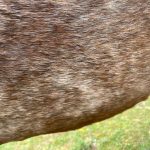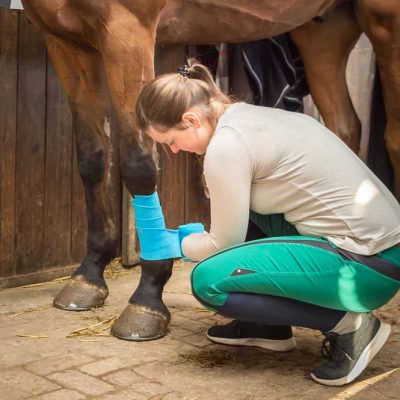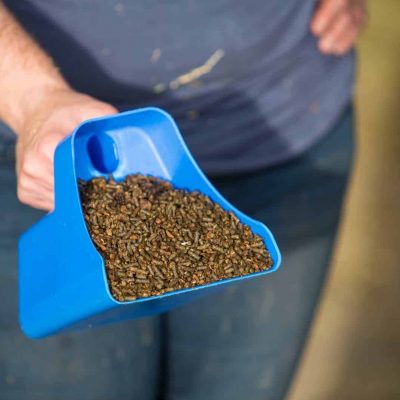Arthritis in Horses: Understanding, Treating, and Supplement Options
Arthritis is a common condition that affects horses of all ages and disciplines. It can cause discomfort and limit their mobility. In this article, we will explore the causes, symptoms, and treatment options for arthritis in horses, with a focus on natural supplements. Let’s dive in and discover how we can support our equine friends in managing arthritis effectively.
Understanding Arthritis in Horses
Arthritis is the inflammation of the joints, which can lead to stiffness, pain, and reduced range of motion. It can be caused by various factors, including age, conformation, overuse, injuries, and wear and tear. Horses with arthritis may exhibit lameness, reluctance to move, stiffness, and swelling around the affected joints.
Natural Supplements for Arthritis in Horses
Supplements can play a crucial role in supporting horses with arthritis. Here are some popular options:
- Glucosamine: Glucosamine is a widely used supplement that helps support joint health and reduce inflammation. It promotes cartilage repair and protects the joints from further damage.
- Boswellia: Boswellia, also known as Indian frankincense, is a herb that possesses anti-inflammatory properties. It can help reduce joint pain and stiffness associated with arthritis.
- Turmeric: Turmeric contains a compound called curcumin, known for its anti-inflammatory and antioxidant properties. It can aid in managing arthritis symptoms and promoting overall joint health.
Choosing the Right Arthritis Supplement
When selecting a supplement for a horse with arthritis, it is essential to consider the following factors:
- Quality: Look for supplements from reputable brands that adhere to strict quality control standards. High-quality ingredients ensure the effectiveness and safety of the product.
- Ingredients: Opt for supplements that contain key ingredients such as glucosamine, chondroitin, MSM (methylsulfonylmethane), and natural anti-inflammatory herbs like boswellia and turmeric.
- Veterinarian Guidance: Consult with your veterinarian to determine the best supplement and dosage for your horse. They can assess the severity of the arthritis and recommend a suitable option based on your horse’s individual needs.
Dosage Considerations for Boswellia
When using boswellia as a supplement for arthritis in horses, the dosage may vary. It is recommended to follow the manufacturer’s instructions or consult with your veterinarian for appropriate dosage guidelines based on your horse’s weight and condition.
Boswellia Side Effects
Boswellia, also known as Indian frankincense, is generally considered safe for most horses when used appropriately. However, as with any supplement or medication, there is a possibility of side effects. It is important to note that individual horses may react differently, and it is always recommended to consult with a veterinarian before introducing any new supplements or medications. Here are some potential side effects associated with Boswellia:
- Gastrointestinal Upset: Some horses may experience mild digestive upset, such as diarrhea or stomach discomfort. If these symptoms occur, it is advisable to reduce the dosage or discontinue the use of boswellia.
- Allergic Reactions: Although rare, some horses may develop an allergic reaction to boswellia. Signs of an allergic reaction can include hives, swelling, difficulty breathing, or other signs of distress. If any allergic reaction is observed, discontinue the use of boswellia and seek immediate veterinary attention.
- Interactions with Other Medications: Boswellia may interact with certain medications, such as blood thinners or non-steroidal anti-inflammatory drugs (NSAIDs). It is important to inform your veterinarian about all medications or supplements your horse is currently receiving to avoid any potential interactions.
It is worth noting that the majority of horses tolerate boswellia well, and side effects are relatively rare. However, it is always prudent to monitor your horse closely when introducing any new supplement and consult with a veterinarian for proper guidance and advice.
Remember, each horse is unique, and what works well for one may not work the same for another. Veterinary guidance and regular monitoring of your horse’s health and response to supplementation are essential to ensure their well-being.
Treating Arthritis in Horses Naturally
In addition to supplements, there are other natural approaches that can help manage arthritis in horses:
- Regular Exercise: Gentle, controlled exercise, such as walking and low-impact turnout, can help keep the joints mobile and prevent stiffness. Avoid excessive strain or high-impact activities.
- Weight Management: Maintaining a healthy weight is crucial for reducing stress on the joints. Ensure your horse is on a balanced diet and monitor their body condition regularly.
- Comfortable Environment: Provide your horse with a comfortable, well-bedded stall and consider using supportive bedding materials that cushion the joints.
Arthritis is a common condition in horses that requires careful management. Natural supplements, such as glucosamine, Boswellia, and turmeric, can support joint health and reduce inflammation. Always consult with your veterinarian to determine the best supplement and dosage for your horse. Additionally, a holistic approach, including proper exercise, weight management, and a comfortable environment, can help improve your horse’s quality of life. By providing appropriate care and support, we can help our equine companions thrive even with arthritis.








No Comment! Be the first one.